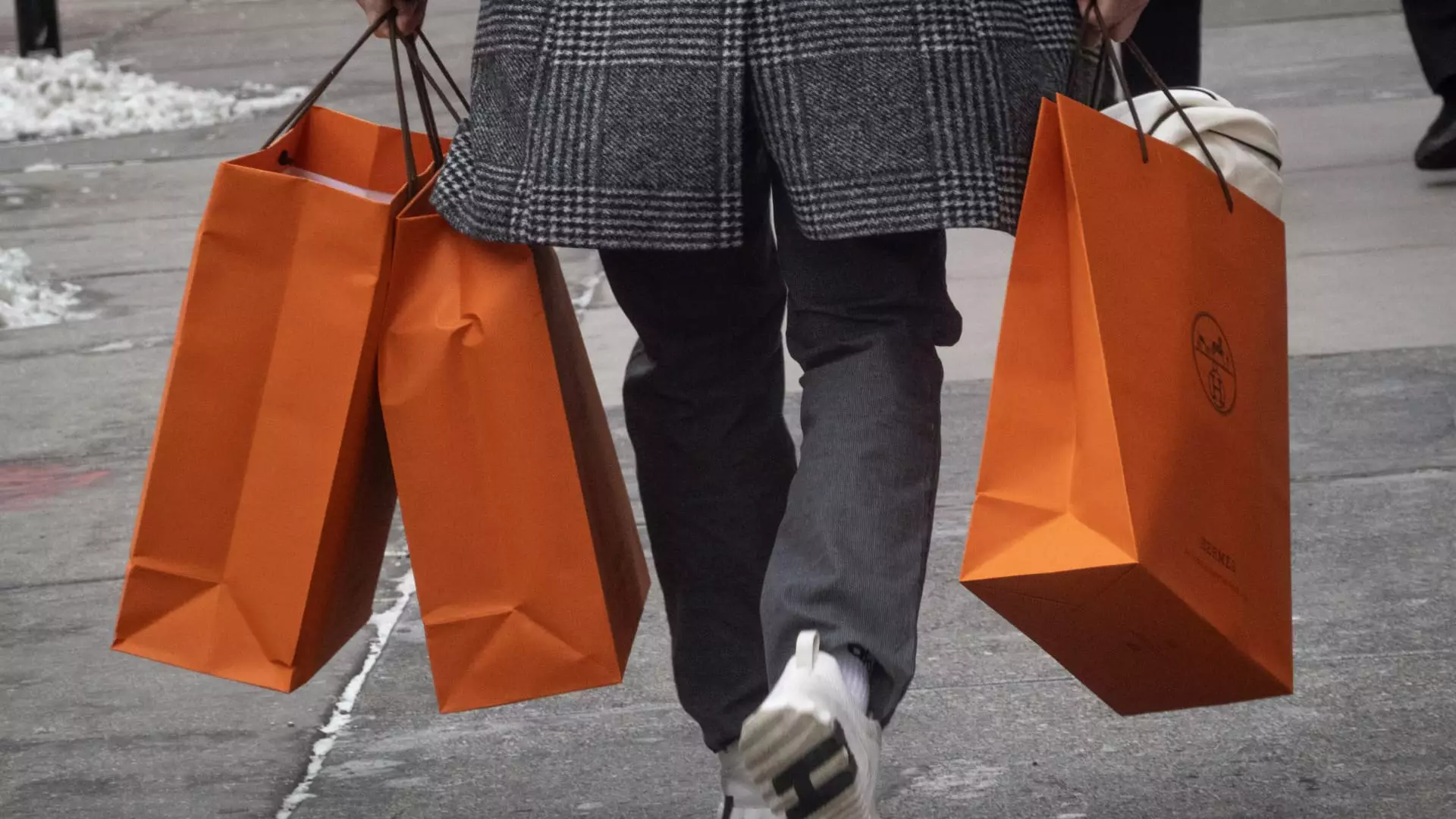European luxury brands have long stood as symbols of opulence and exclusivity—an economic bubble that has sustained itself through cycles of crises and consumer whims. However, recent shifts in U.S. trade policy and the threat of a global economic downturn unveil cracks in this glittering facade. As the news of U.S. tariffs on European imports rattles investors, luxury brands like LVMH, Richemont, Kering, and Hermes are beginning to feel the tremors of uncertainty. Initial reactions have led to notable drops in their stock values, revealing an unsettling truth: even the most coveted brands are not immune to the realities of global economics.
The initial impact of tariffs may seem negligible for luxury houses, but the lurking specter of a 60% chance of recession casts a long shadow over their recovery. While the luxury sector has historically weathered economic storms better than most, the birth of a new economic crisis could fundamentally alter the landscape. The news is startling, particularly to those who believed the luxury market would return to its pre-pandemic glow, only to find that recovery could be another mirage.
The Impact of Tariffs: Not Just Numbers on a Spreadsheet
It’s easy to dismiss the figures and percentages thrown around by analysts, but they often mask the deeper implications for everyday consumers. According to Deutsche Bank’s Adam Cochrane, the broadening effects of tariffs could lead to a significant dip in consumer confidence that outweighs the modest sales generated from the U.S. market—an unsettling thought for brands that rely heavily on a consumer base willing to pay a premium for quality. “Luxury is a state of mind,” they say, but what happens when that state of mind is overshadowed by financial anxieties?
The possibility of passing increased import costs onto consumers can sound relatively painless in theory but becomes complicated when the economy is slowing down. While wealthy shoppers usually have the capacity to absorb higher costs, even they can falter under extreme pressure. This notion brings about a critical juncture: the luxury sector may be forced to reassess its pricing strategies, adjust its supply chains, or even rethink its target demographics.
The Broadening Crisis: Beyond Tariffs and Into Recession
As analysts paint a grim picture of dwindling sales and rising tariffs, the focus shifts to the potential long-term ramifications. JP Morgan’s Jamie Dimon has warned that the resulting market turmoil may make a recession “likely,” suggesting that the ramifications of U.S. trade policies could far exceed what anyone has anticipated. This isn’t merely an issue of luxury brands; it’s a systemic problem that affects all sectors of the economy.
The fragile economic dynamics mean that many luxury brands would find it hard to maintain their sales in the face of a crisis. The sentiment echoed by analysts like Luca Solca—while tariffs might have a negligible direct impact initially—hints at impending shocks that could rattle the foundations of these luxury giants. This fragile equilibrium now seems increasingly precarious, as consumer spending habits can change overnight, particularly in the disruptive climate brought on by external political forces.
China’s Growing Influence and the Unforeseen Consequences of U.S. Tariffs
The impact of these U.S. tariffs is not confined to American shores; it reverberates across global markets, particularly affecting luxury demand in China—a critical market for these brands. With virtually every major luxury house being heavily reliant on the Chinese consumer, any strain on relations with the U.S. could create a domino effect that leads to a spiral of diminishing sales figures across the board.
Companies that previously adapted well to shifting consumer sentiments may find themselves wrestling with new complexities related to trade policies rather than simply responding to changing fashion trends. The 125% tariffs imposed on U.S. goods as a counter-measure will only serve to exacerbate an already shaky relationship with wealthy Chinese consumers, who have played a crucial role in propelling luxury profits.
A Shifting Paradigm: The Future of Luxury in an Uncertain World
As we critically examine the broader implications of current trade tensions and economic uncertainties, one cannot help but question the sustainability of the luxury industry in its current form. European luxury brands, once viewed as unassailable bastions of taste and prestige, are now faced with existential questions. The luxury market is not merely a revenue center; it represents a cultural phenomenon woven into the fabric of societal aspirations.
As brands scramble to adapt, the looming question arises: how will they leverage their heritage, craftsmanship, and exclusive appeal in an increasingly hostile economic environment? Will they emerge redefined and reborn, or will they wither under pressures beyond their control? The looming specter of recession may force a necessary evolution, but how well these brands navigate the treacherous waters ahead will determine not just their survival, but the very essence of luxury itself.

